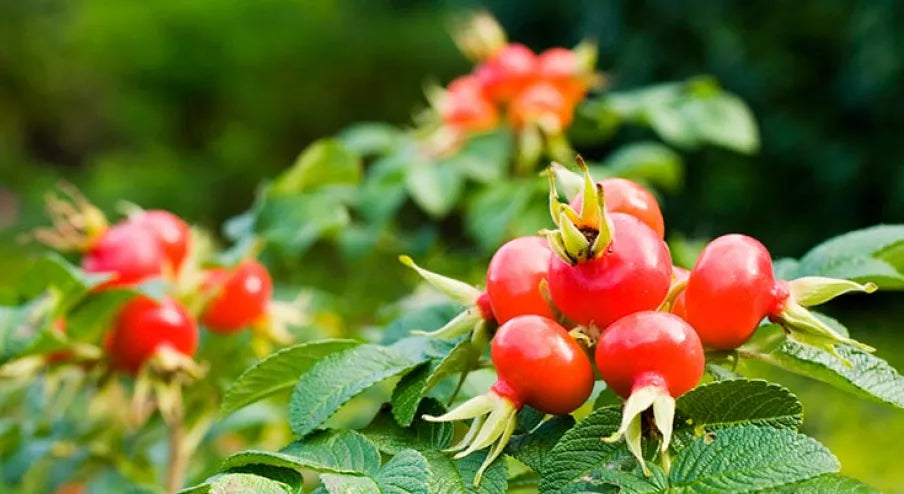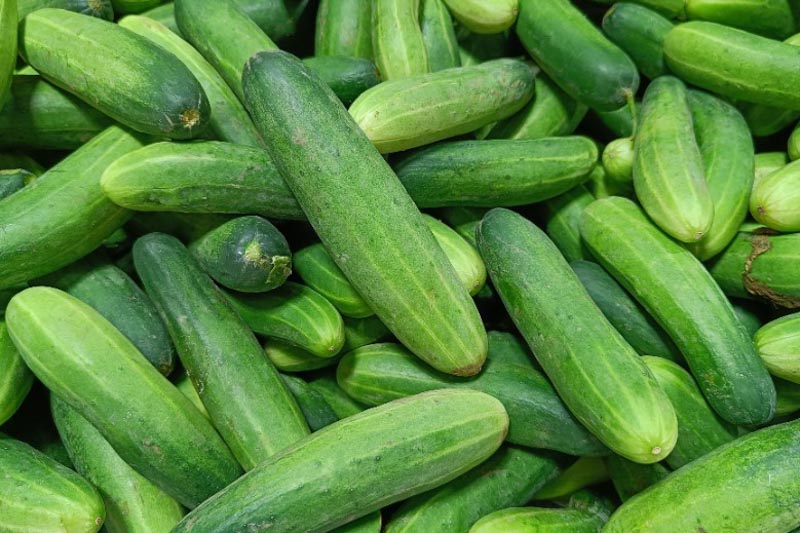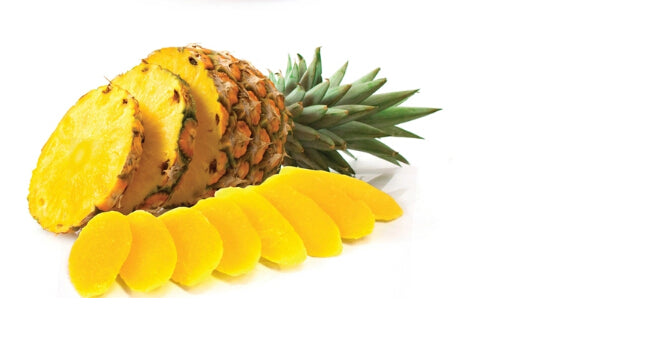
Rose Hip Oil and How It Helps Acne
What is Rose Hip?
Rosehip is the fruit of the wild rose often written as "rosehip", scientifically known as Rosa canina, which is a species of the rose family Rosaceae. These small, round, or oval-shaped fruits are typically red or orange, and they develop after the flowering stage of the wild rose plant. Rosehips are widely recognized for their health benefits and have been used traditionally in various culinary, medicinal, and skincare applications.
Key features of rosehips include:
- Nutrient-Rich: Rosehips are packed with essential nutrients, including vitamin C, vitamin A, vitamin E, and vitamin K. They also contain various minerals and antioxidants, making them a valuable addition to the diet.
- Vitamin C Content: Rosehips are particularly known for their high vitamin C content. They are one of the richest plant sources of vitamin C. This nutrient is essential for immune system support, skin health, and overall well-being.
- Medicinal Uses: Rosehips have a long history of use in traditional medicine. They are often used to make herbal teas, extracts, and supplements for various health purposes, including immune support, pain relief, and as a natural remedy for colds and flu.
- Culinary Applications: Rosehips can be used to make jams, jellies, and herbal infusions. They are sometimes included in baked goods and desserts for their tart flavor and nutritional value.
- Skincare: Rosehip oil, extracted from the seeds of rosehips, is popular in skincare products. It is known for its potential benefits for the skin, including moisturizing, reducing the appearance of scars and wrinkles, and improving skin tone and texture.
- Anti-Inflammatory Properties: Rosehips contain natural compounds with anti-inflammatory properties, which can be beneficial for various inflammatory conditions.
- Antioxidants: The antioxidants in rosehips help protect cells from damage caused by free radicals. These antioxidants can support overall health and may contribute to skin health and anti-aging benefits.
- Horticultural Beauty: Wild roses and their rosehips are also appreciated for their ornamental value in gardens and landscapes. The colorful, fruit-bearing branches add visual interest to gardens during the fall and winter seasons.
Rosehips are versatile and offer a wide range of uses, from culinary delights to skincare and traditional medicine. Their high nutritional content, particularly vitamin C, makes them a valuable addition to the diet, while rosehip oil has gained popularity in the beauty and skincare industry for its potential to promote healthy, radiant skin.
How Rosehip help with acne
Rosehip oil can potentially help with acne in several ways, making it a valuable addition to skincare for individuals with acne-prone skin. Here's how rosehip oil may assist in managing acne:
- Moisturization: Despite having acne, it's essential to maintain proper skin hydration. Rosehip oil is non-comedogenic, meaning it won't clog pores, making it suitable for acne-prone skin. Applying rosehip oil can help keep the skin moisturized without exacerbating acne.
- Reduction of Inflammation: Rosehip oil contains compounds with anti-inflammatory properties. These can help calm the redness and swelling associated with acne breakouts. By reducing inflammation, rosehip oil may make acne lesions appear less severe and feel less painful.
- Scar Reduction: Rosehip oil is known for its potential to reduce the appearance of scars, including those left behind by acne. It contains essential fatty acids and vitamin A, which can support skin regeneration and repair. Over time, the application of rosehip oil can contribute to smoother and more even-toned skin.
- Antioxidant Protection: Rosehip oil is rich in antioxidants, such as vitamin C and vitamin E. These antioxidants help protect the skin from oxidative stress caused by free radicals, which can exacerbate acne and lead to premature aging. Antioxidants support overall skin health and may assist in preventing new acne breakouts.
- Skin Regeneration: Rosehip oil is known for its potential to promote skin regeneration and collagen production. Collagen is essential for skin elasticity and can help improve the overall texture of the skin. This can be particularly beneficial for individuals dealing with acne scarring.
- Balancing Sebum Production: While research is ongoing, some individuals find that using rosehip oil can help balance sebum (skin oil) production. Balanced sebum levels are essential for preventing clogged pores and acne breakouts.
- Gentle Exfoliation: Rosehip oil contains natural exfoliants, such as vitamin A (retinol) and essential fatty acids, which provide a mild exfoliating effect. This helps remove dead skin cells and unclog pores, reducing the risk of new acne lesions.






